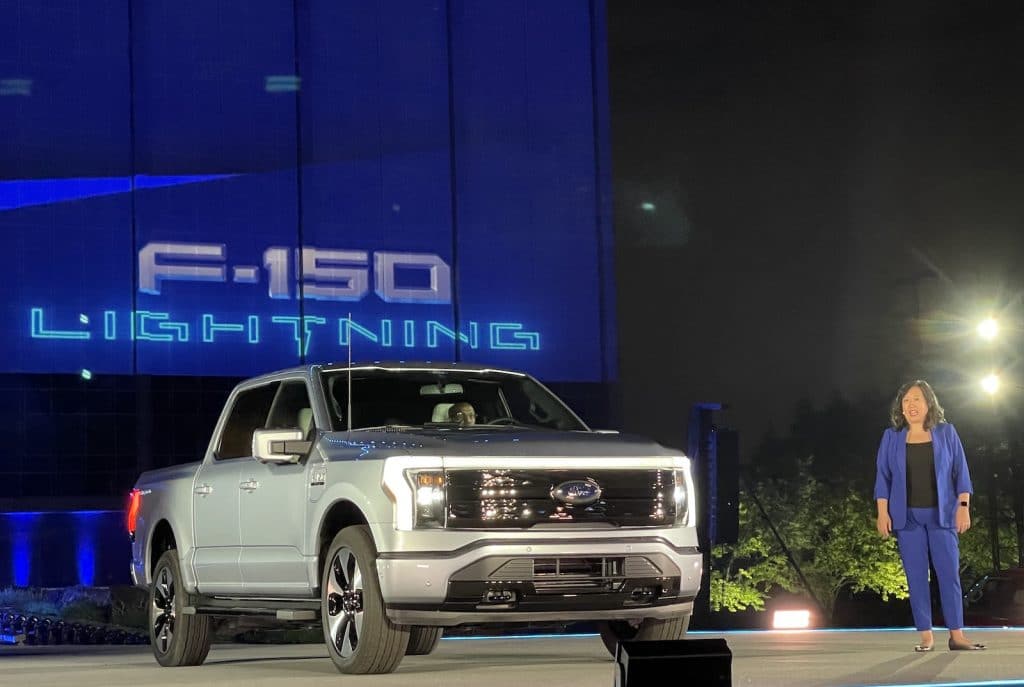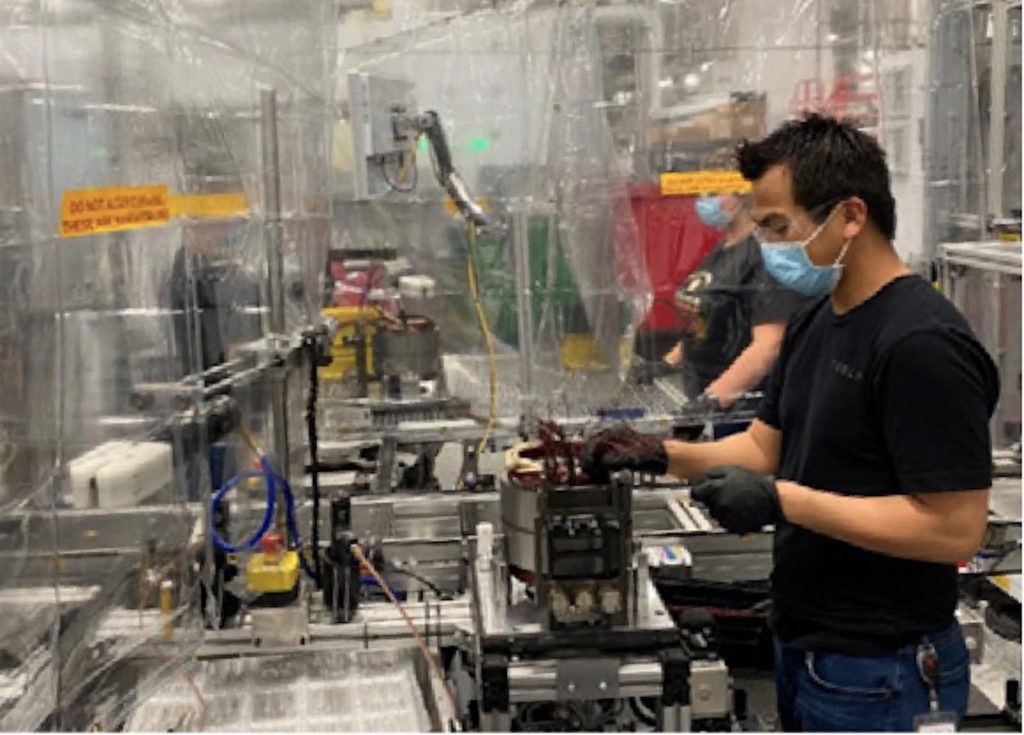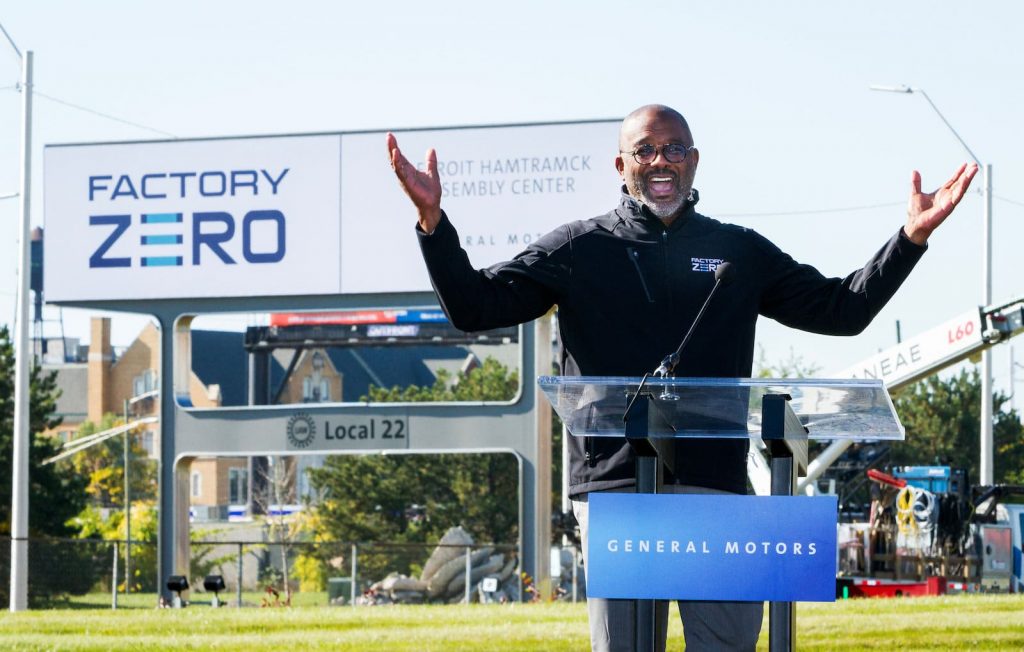The U.S. Senate Finance Committee gave a boost to President Joe Biden’s pro-EV agenda by advancing legislation that would provide up to $12,500 in tax credits to electric-vehicle buyers.

The bill has a number of restrictions, however. For one, it would limit the maximum credits to vehicles assembled by union workers in the U.S. And it would only cover vehicles priced at or below $80,000.
The “Clean Energy for America” bill also would eliminate the cap on how many EVs each manufacturer can sell before losing their tax credits.
Currently, buyers of qualified hybrids and pure battery-electric vehicles may receive federal tax credits of as much as $7,500 — with some states offering additional incentives. But those incentives phase out once a manufacturer passes 200,000 sales. Tesla and General Motors already passed that threshold and several other companies, including Nissan and Ford, could see their credits begin to phase out within the next year or two.
Caveats could benefit domestic automakers

That creates a potentially significant competitive disadvantage as other manufacturers enter the EV market and can continue to offer the incentives.
The Clean Energy bill, as proposed by Senator Debbie Stabenow, a Michigan Democrat, would retain the original $7,500 credit, and create two additional benefits. EVs built in the U.S. would qualify for up to another $2,500, and those built here by union workers could generate another $2,500 in credits.
That would potentially play into the hands of Detroit automakers, such as General Motors and Ford, as well as Stellantis — though products they assemble in Canada or Mexico could lose some of the benefits. Most major manufacturers now operate plants in the U.S., including Tesla, Toyota, Volkswagen and Volvo, and could potentially benefit from the domestic production clause. But none of the others currently are unionized.

To encourage automakers to produce vehicles in the U.S., Stabenow’s proposal would offer them a 30% tax credit to retool existing factories, or build new ones. It would also support new battery production, as well as sales of commercial electric vehicles, such as the new Ford E-Transit van.
Bill moves forward on party-line vote
The bill, as currently proposed, would cost an estimated $31.6 billion through 2031.
It passed its first test in the Senate Finance Committeee on a tied 14-14 vote. It must yet win final approval in a politically divided Senate before moving to the House of Representatives where there has been stronger support for pro-green energy legislation. If it passes both chambers it would move to the president’s desk for his signature.
The Clean Energy for America bill stays with the current strategy of offering EV buyers federal tax credits. The Biden administration had previously indicated it might support a shift to direct sales incentive, rather than requiring buyers to wait until they file taxes.
But the move would fit into the president’s broader push to promote battery-electric cars. Biden wants $174 billion, including not only as buyer incentives but also to back a nationwide network of 500,000 public quick chargers.

Praise and nays
The Clean Energy bill won praise from Rory Gamble, president of the United Auto Workers union, who said, “EV production will directly create the good paying union jobs of the future President Biden has championed.”
The tax credits are part of a broader, $259 billion package the Senate Finance Committee will now move to the main Senate. Ron Wyden, the Oregon Democrat who chairs the committee, said it aims to address a current “hodgepodge” of energy tax credits. It would reduce or fully eliminate $24.5 billion in breaks for coal, oil and natural gas groups, shifting emphasis to renewable resources.
But that generated strong opposition from the GOP side of the evenly divided Finance Commttee.
Regarding EVs, “Why are we paying them a bonus to buy what they are already going to buy?” asked Jim Lankford, an Oklahoma Republican.
Industry analysts believe that the rising number of new EVs, especially long-range models like the new Ford F-150 Lightning, Lucid Air and GMC Hummer, will help boost demand. But they generally contend that incentives are still needed to help compensate for the higher cost of battery-drive technology.








I don’t know why the Senate Democrats don’t take the decisive action that’s required. Give every adult American (who votes) a FREE electric vehicle of their choice (and FREE charging and FREE insurance and FREE maintenance). That’s the kickstart EVs need to succeed in the marketplace.
That was easy, now let’s solve the food and housing problem……………….